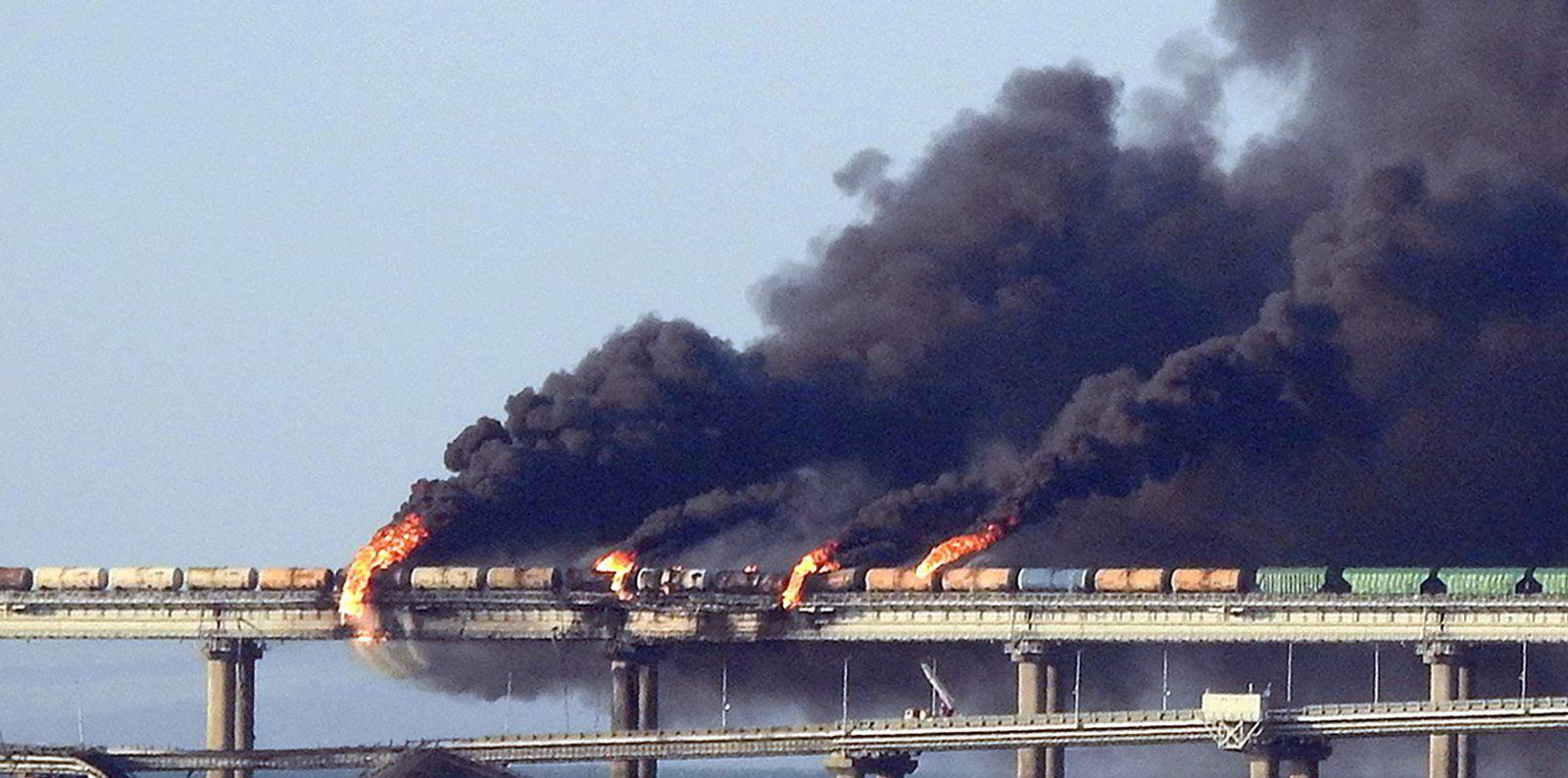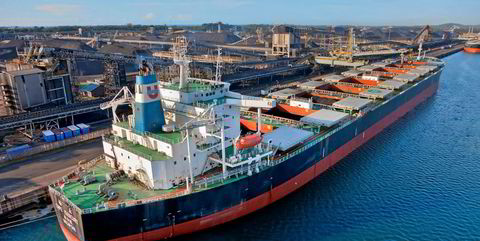The attack on the Kerch bridge between Russia and the annexed Crimea may have appeared to mark the demise of Black Sea Grain Initiative but the writing had been on the wall for some time.
Shipping movements have now been stopped, flooding the wider dry bulk market with vessels that were still queuing to get into Ukrainian waters.
Economists in different parts of the world said it could only lead to more cost inflation at a time when intense weather temperatures are also hitting food production.
Climate change is a huge threat to shipping but we are reminded that geopolitical upset affects markets suddenly and substantially too.
The Kremlin’s decision to invade Ukraine has already affected global seafaring capacity as shipowners steer clear of employing Russians for a variety of reasons.
Vladimir Putin’s decision to pull the plug on the deal on Monday came after the newly built bridge was attacked for the second time but also just as the annual grain harvests are readied.
Smaller ships are likely to suffer hardest from the end of the grain deal as there were rich pickings for those willing to take part in the United Nations-sponsored programme.
To make matters worse, Russia had just warned of sea mines in the north-west Black Sea area that could endanger seafarer safety.
The end of the grain deal also spells doom for vessels that have been stuck in Ukrainian ports since the beginning of the Russian invasion nearly 18 months ago, as my colleague Harry Papachristou has reported.
The Kremlin had been in no mood to keep the deal going anyway given — in its view — Moscow was not getting its needs met in return for allowing Ukrainian harvests to be shipped out of Odesa and other ports.
Moscow’s demands

Russia was particularly keen to resume movements of ammonia into the country via a pipeline based in Ukrainian territory.
But most importantly it had been pushing for wider port bans to be removed from Russian vessels, a reduction in insurance premia on ships in Russian waters and a resumption of agricultural machinery imports.
In reality, the initiative had ceased functioning since the end of June when Russian inspectors stopped registering vessels for the scheme.
Last week, the UN made a last-ditch attempt to save the deal by reducing sanctions on the Russian Agricultural Bank — but to no avail.
The Black Sea Grain Initiative — signed exactly a year ago in Istanbul — has mainly benefited long-haul shipping to China.
Certainly, in volume terms, it has been Beijing that imported 25% of the total (7.96m tonnes) over the past 12 months.
It was followed by nations much closer to hand, as in Spain (5.98m tonnes), Turkey (3.24m tonnes), Italy (2.1m tonnes) and the Netherlands (1.96m tonnes), according to figures from the UN.
Overall, the initiative had allowed for more than 1,000 shipping movements out of Ukraine — moving around 33m tonnes of foodstuffs.
What is likely to happen now is that those food prices will go up again. With that, countries will no longer be able to supply food to children and their families
— Save the Children spokeswoman
But the real value of the deal brokered by the UN in Istanbul on 22 July 2022 was to bring down international food prices.
And it also played a key role in the UN’s World Food Programme, which obtained two-thirds of its grain from Ukraine before the Russian invasion.
That was distributed to countries most badly hit by war or extreme weather events such as Ethiopia, Yemen and Afghanistan.
“What is likely to happen now is that those food prices will go up again. With that, countries will no longer be able to supply food to children and their families,” a spokeswoman at Save the Children told Al Jazeera news agency.
Agricultural exports from Ukraine will not end completely, but volumes will be reduced dramatically as much slower and lower capacity land routes or River Danube docks are used.
Analysts at investment bank Citigroup estimate the Black Sea Grain Initiative triggered a 25% reduction in global prices overall.
Russia’s formal pull-out on Monday immediately pushed benchmark Chicago wheat prices upwards, although they later settled down again at around $6.60 per bushel.
Corn and soybean prices had also risen but we can expect some bulk freight rates to fall as vessels give up on Black Sea shipments.
There is still a tiny hope the deal can be revived but it looks like the Dead Sea for now.






